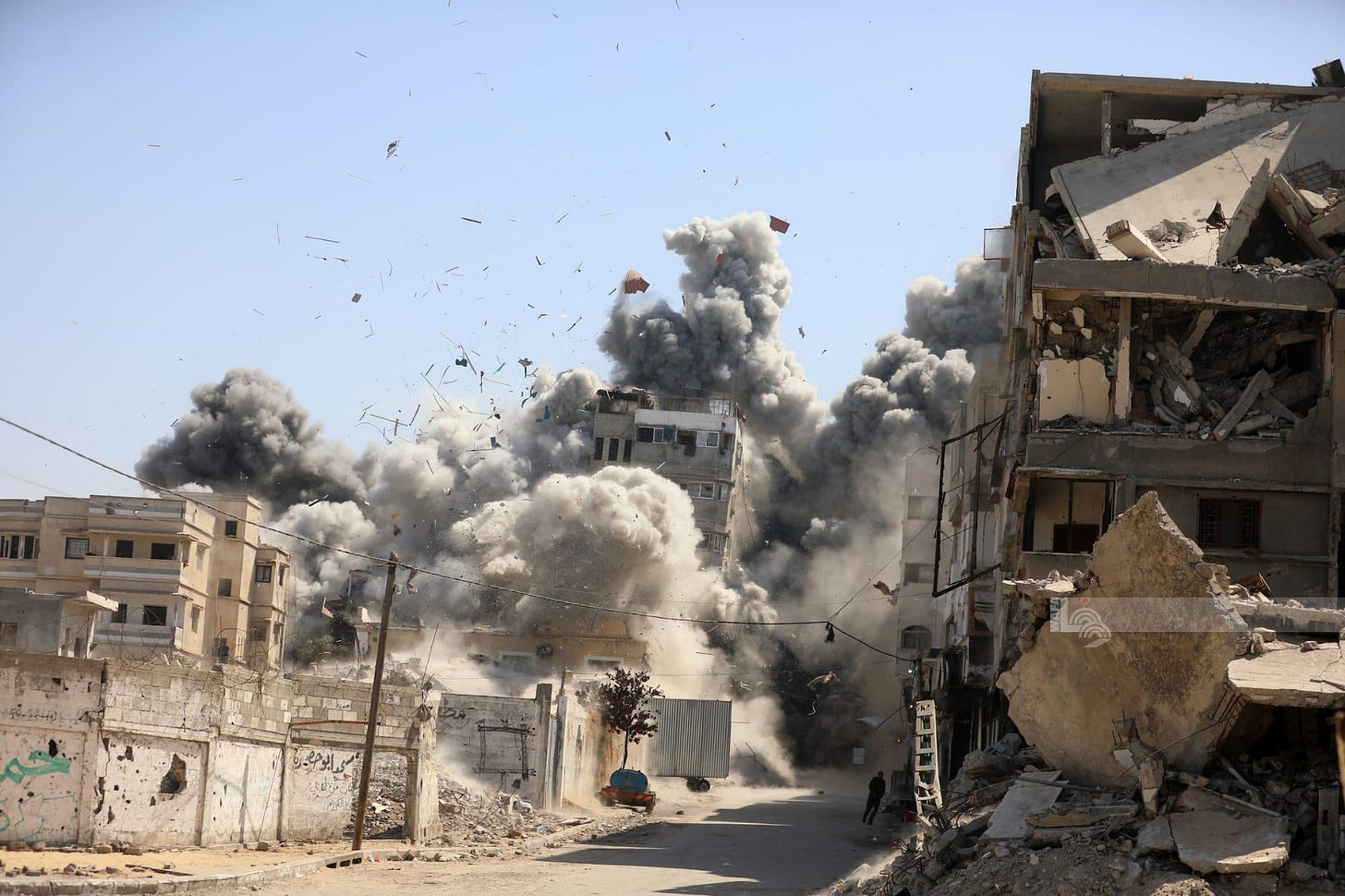Analyst: Israel Is Reengineering the Gaza Confrontation — Where Will the Escalation Lead?
Analyst Sari Orabi: Tel Aviv Seeks to Reshape Gaza’s Entire Political and Security Landscape
Palestine, PUREWILAYAH.COM –Amid a tense regional landscape and rapidly shifting battlefronts, Gaza once again emerges as a central arena in the ongoing confrontation—revealing a consistent Israeli strategy aimed at expanding control and deepening security domination with blatant disregard for agreements or international pressure.
In an exclusive analysis for the Palestinian Information Center, political analyst Sari Orabi explains that Israeli actions in Gaza cannot be dismissed as mere “military reactions.” Instead, they represent a long-standing strategic doctrine rooted in a worldview that sees Gaza as a critical battleground that must be subdued at any cost.
Israel Seeks to Reshape Gaza’s Security and Political Environment
Through a broader review of Israeli behavior in Syria, Lebanon, and the West Bank, Orabi notes that these interconnected scenes reveal a single overarching objective: to completely reengineer Gaza’s political and security environment to Israel’s advantage.
He argues that Gaza’s escalation mirrors a broader pattern of Israeli operations across multiple arenas:
In Syria, Israel continues to expand its influence through ongoing strikes, assassinations, and arrests — even though the Syrian front has not fired a single shot at Israel.
In Lebanon, Israel evades ceasefire commitments while continuing to occupy Lebanese territory.
In the West Bank, daily violations and relentless repression reflect an entrenched Israeli doctrine that relies on unrestrained military force.
This pattern, Orabi stresses, is neither accidental nor isolated — it is a unified strategy of domination.
Gaza: The Core of the Israeli Security Mindset
According to Orabi, Gaza stands at the heart of the Israeli security mindset, perceived by Tel Aviv as the center of the confrontation and the key to what it calls its “national security.”
Israel shows no willingness to relinquish its self-imposed “security prerogatives.” Instead, it continues to carry out:
airstrikes,
targeted assassinations,
invasions,
widespread arrests, and
continuous surveillance operations
—all under the pretext of “security necessity,” regardless of the accuracy or truthfulness of Israeli claims.
Orabi notes: For Israel, the benchmark is not evidence, but perceived security benefit.
A Ceasefire in Name Only: Washington’s UN Maneuver Gives Israel a Green Light
Orabi highlights that even after the latest UN Security Council resolution, Israel has no intention of fully withdrawing from Gaza.
Thanks to the US-backed UN formula, Israeli withdrawal is linked to Israel’s own assessment of whether it has successfully “neutralized” the resistance — giving Tel Aviv unlimited freedom to maintain a security cordon around Gaza.
This allows Israel to:
continue operating inside Gaza,
conduct raids and assassinations,
arrest Palestinians at will,
all while treating its presence not as temporary, but as an open-ended mandate.
Israel Views All of Gaza as an Enemy Population
Orabi stresses that Israel sees the entire population of Gaza as adversaries — with Hamas and armed resistance factions as primary targets.
The Israeli objective, he says, is clear: To dismantle the resistance, or at least prevent it from rebuilding — by attacking any person, location, or activity Israel deems even remotely connected to resistance.
Israel manufactures pretexts, often weak or baseless, to justify these strikes, employing them as cover for systematic targeting.
A Strategy of Collective Punishment and Social Collapse
Beyond military operations, Orabi asserts that Israel makes no real effort to avoid civilian casualties. Instead, recent attacks on women and children reveal a deliberate strategy of collective punishment.
The aim, he explains, is to:
intensify suffering,
break societal resilience,
create an unlivable environment in Gaza,
and prevent any future emergence of Palestinian power.
He describes this as Israel’s long-term project to transform Gaza into a space incapable of sustaining life — a calculated strategy that serves Israel’s broader political aims.
A Doctrine With No End in Sight
In conclusion, Orabi emphasizes that Israel’s current escalation is not part of a temporary flare-up, but an extension of a deeply entrenched security doctrine built on long-term domination.
This approach will persist, he argues, unless meaningful international pressure is applied, or unless Israel is finally subjected to genuine constraints that force it to halt its aggression and respect ceasefire agreements. (PW)


